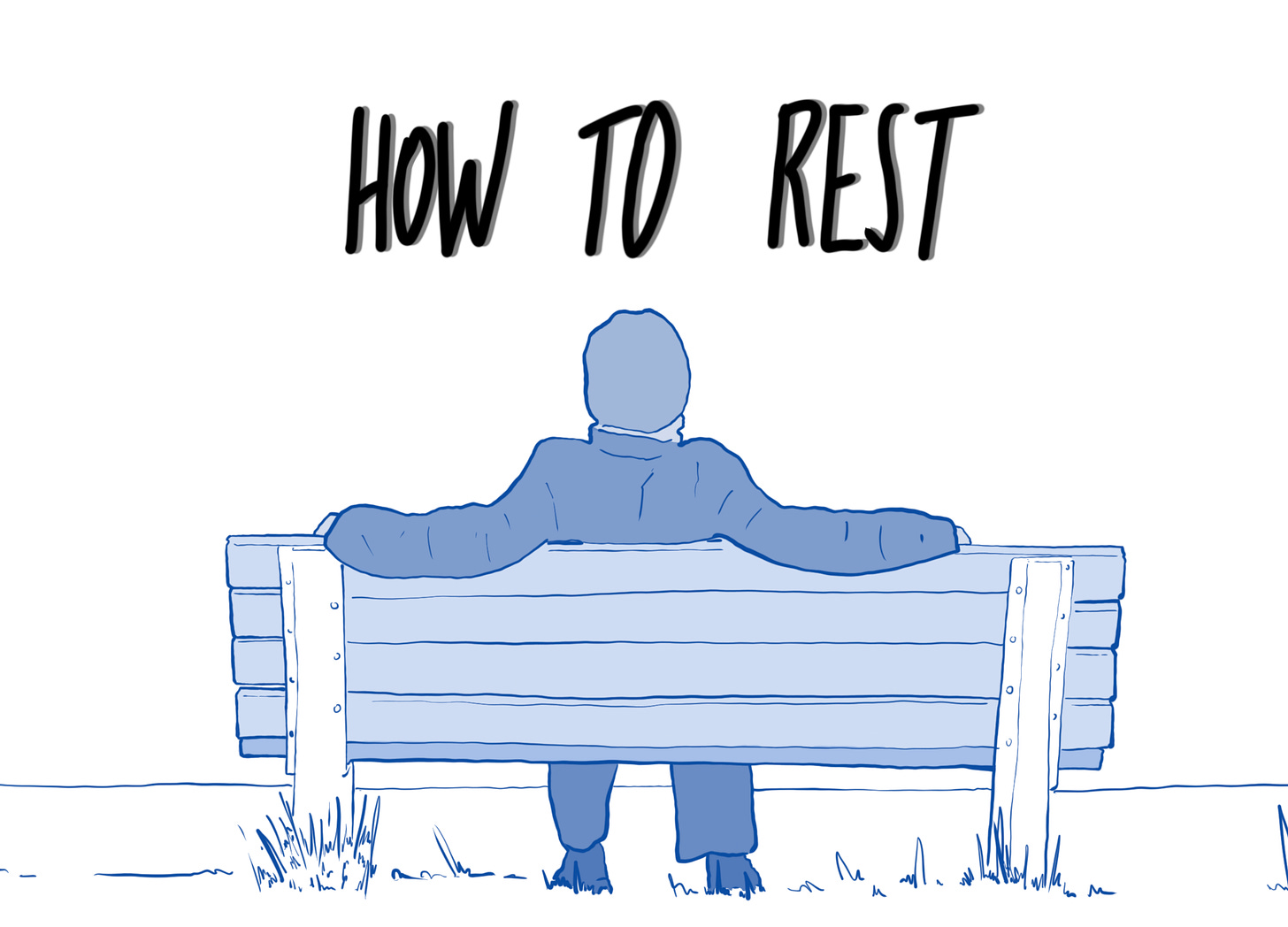How To Rest
With the holiday season ending, I hope you're rested. Today, I'm sending a revised article on how to remain calm 🙂 Internet is full of "productivity hacks," yet little about rest. Besides sleep, exercise, or diet, we rarely talk about rest from technology.
1️⃣ Define rest baseline
2️⃣ Track tiredness levels
3️⃣ Use effective rest strategies

Define rest baseline
This article is not work-life balance advice; instead, it focuses on different stages of tiredness and explores activities to restore energy. Pandemic removed boundaries between work and leisure at home for many. When we work overtime, we use future work resources to get the job done now. I don't believe it's a sustainable tactic to rush to meet deadlines, followed by a rest later. To keep my energy level stable, I established my "rest baseline":
I have a positive outlook, take responsibility for projects and tasks, and brainstorm new ideas. There is a sense of mental clarity. I can think long-term and plan.
Track tiredness levels
Let's imagine that each tiredness level ("T-level") can match a specific rest activity. T1 is when you're least tired, while T4 is when you're on the edge of burnout.
T-Level 1: As the workday ends, you feel fatigued. It's hard to come up with creative ideas, but you can carry on with administrative work;
T-Level 2: As the workweek ends, you feel overwhelmed. You avoid making important decisions or planning long-term. Even administrative work is daunting;
T-Level 3: Regardless of the day, you feel exhausted. You don't have the same excitement at work as you used to;
T-Level 4: You're irritated with the work and people on your team. Everything seems wrong. You become passive-aggressive.
Use effective rest strategies
Assuming you know your "tiredness level," here are ideas for rest strategies.
T-Level 1 → Evening Chill: A short-term rest can help you get distracted from work. The goal is to switch your main focus so that your brain doesn't keep actively working on a work assignment, for example:
Go for a walk. After switching from an active work mode, you need to slow down mentally. Listening to calm music helps;
Read something you like. It shouldn't be related to work, as you don't want to stimulate the brain further.
T-Level 2 → Low-Key Weekend: At this point, rest needs to last for a few days instead of hours. Again, it's important to get distracted from active work focus. If you work with technology, replace screen time with physical activity: my personal favorite is decluttering - it helps me review what's happening in my life and get rid of unnecessary distractions:
Do yoga, hike, or walk to get 10k+ steps;
Substitute screen time with board games or just social time with friends and talk about everything else but work.
T-Level 3 → Vacation Retreat: This level is alarming. You may feel that you only need a weekend rest, but you'll end up tired again once you start working. If it continues for too long, you end up burning out. It's worth taking a week off your day-to-day activities because you don't want to see triggers and reminders about daily worries.
If you don't usually read hardcopy books, now may be a good time;
If you live in a city, you may enjoy spending time in nature. Once you get bored there, you'll remember all the great things about your regular life and work.
T-Level 4 → Sabbatical: This level of tiredness would require the most time to recover. Since you're exhausted at this point, any activity may seem daunting in and of itself.
Taking time to connect with family and friends offline;
Take a "digital and work detox".
People often rely on taxing rest activities such as social media browsing or binge-watching when tired. While these seem like rest, we often end up feeling worse. My guess here is that most of those stimulate our brain with more information. I'd argue that those have to be avoided, but feel free to experiment with them on your own. I often got angry with notifications or apps on my phone, but they weren't the source of stress itself. So make sure you find what triggers you.
Digital Hygiene Recommends
Becker, J. - "The Lost Practice of Resting One Day Each Week"
Not to get your expectations too high, but this is the best end-of-year.

